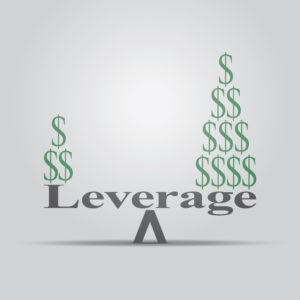How Business Owners Can Protect Their Assets</strong
Entrepreneurs and small business owners face a variety of financial threats, ranging from the liability risk that comes with interacting with the public to dangers like recession, or an accident that impairs their ability to operate their business.
Aside from general risks such as an economic downturn or poor performance at your business, there are a variety of insurance products available to protect your hard-earned assets against many of the common commercial and personal risks business owners face.
Insurance policies used for this purpose generally fall into the following categories:
- Risks associated with doing business: Typically covered via a variety of commercial insurance products such as:
- General liability insurance
- Commercial property insurance
- Business interruption insurance
- Business owners insurance
- Commercial vehicle insurance
- Disability insurance: Insurance that replaces some portion of your income if you are unable to work.
- Health insurance: Insurance that pays at least some portion of medical costs and treatment.
- Life insurance: Insurance that provides your beneficiaries with funds if you pass away.
Below we will cover the various ways these types of insurance can be used to protect against the many risks business owners face today.
Insurable business risks
Aside from poor performance at your business, for whatever reason, there are many insurable risks that could have a devastating impact on your company.
Whether they take the form of a lawsuit due to a slip and fall on company property, a claim of intellectual property theft, or an accident that impedes your business’s ability to operate, the danger such incidents pose can be considerable.
In fact, one report showed that nearly 40% of businesses went under after a disaster struck, with that number rising substantially for small businesses.
Because few small businesses can easily handle the financial costs associated with such incidents, purchasing insurance is a cost-effective way to protect yourself and your business against them.
While there are numerous types of business insurance, reflecting the varied risks associated with the multiple types of businesses out there, we’ll focus on the main commercial business insurance types for this post.
Commercial Business Insurance Types include:
General liability insurance:
In today’s litigious society, retaining general liability insurance for your small business helps protect your business assets from the danger of a lawsuit.
Such lawsuits can arise from a wide variety of causes, generally involving claims that the business caused bodily injury, property damage, or personal injury such as can occur through libel or slander.
Commercial property insurance:
Whether the property in question is a computer or a building owned or used by your business, this type of insurance protects it against damage suffered by either human or natural action.
For instance, a storm or earthquake which damages your building or human error that results in damage.
Business Interruption insurance:
In the example given above of a natural disaster such as a storm or earthquake which damages your business property, while the repair or rebuilding of your property might be covered, your business might not be able to operate at the location while the repairs or rebuilding were being done.
This is why many businesses will also carry business interruption insurance. Such insurance allows your business to operate temporarily from another location or virtually while its primary location is out of service.
Business owners insurance:
This type of insurance is aimed at small businesses interested in getting a price break on the major business insurance coverages by bundling them together.
These policies typically include general liability, commercial property, and business interruption insurance in a single package.
Personal Risks
Personal risks can pose serious threats to your ability to protect your assets for yourself and your loved ones. Whether it is a health issue, an accident that prevents you from being able to work, or something more dire, insurance can be used to prevent such incidents from being financially devastating.
Disability insurance:
In many cases, owners of small businesses are essential to the profitable functioning of their business.
While there are certainly exceptions, if your business depends on your business skill, energy, and vision or influence to function optimally, an injury that prevents you from showing up to work can be extremely detrimental.
Such a scenario can cause a business to see its bottom line move from black to red and, in the worst case, can even jeopardize its very survival.
To avoid this type of scenario, purchasing long term disability insurance for yourself and any other essential officers of the business can help to provide income that allows you to avoid selling assets or even being forced to sell off your business to pay bills.
Health insurance:
Similar to disability insurance, health insurance serves the valuable purpose of preventing an injury or health condition from depleting your funds to such an extent that it endangers your ability to continue to run your business or maintain other assets.
Generally, health insurance purchased by a business, like disability or life insurance, is deductible as a business expense.
Alternatively, there are many health share plans available as well. These plans provide a different path to health insurance, using a large network of members that support each other through contributions to the organization or directly to each member.
Life insurance:
In many cases, owners of small businesses are essential to the profitable functioning of their business. If you should pass away, it can impair your business’s profitability to such an extent that it ceases to be viable or must be sold to another owner / operator to preserve its value. In such a scenario, life insurance can help provide for your beneficiaries by making available funds that can be used to buy time to either sell the business or find someone who can operate it effectively.
Types of Life Insurance
The two main types of life insurance, term and permanent insurance, play different roles in helping to protect your loved ones in the event of your death.
- Term insurance runs for a certain period of years and provides a specified payout to your beneficiary or beneficiaries if you pass away during that time.
- Permanent insurance, such as whole life and universal life, on the other hand, typically stays in effect for the life of the insured an offers an investment segment, or cash value account that allows you to save money for later use. This could entail augmenting the value of the death benefit or withdrawing all or a portion of the funds in the form of policy loans or surrender value.
Key Person Insurance
Another type of life insurance, key person life insurance, is specifically designed to help protect a business from the death of an owner, partner or employee who is essential to the successful operation of the business.
This type of insurance provides funds to the business upon the death of a key individual. This enables the business to continue functioning until such time as it can either be sold or a new manager or management is found as a replacement.
Permanent insurance as a savings vehicle
Besides its ability to provide your beneficiaries with funds to help them preserve their standard of living in the event of your passing, permanent life insurance has the added benefit of offering advantages as a savings vehicle.
Because funds held in a life insurance cash or investment account grow tax-deferred, these policies can serve as investment vehicles as well. The savings that build up in a universal or whole life policy can be accessed via either policy loans or partial or full policy surrenders.
The ability to grow the cash savings account enables these policies to serve a dual purpose as standard of living protection for a policy’s named beneficiaries and as a source of savings for the owner of the policy.
These funds can be used for purposes such as saving for retirement, emergency savings, or funding other major financial goals.
Thus, savings in whole or universal life insurance can serve as a secondary form of asset protection, providing funds that can be accessed if a business or personal crisis arises.





